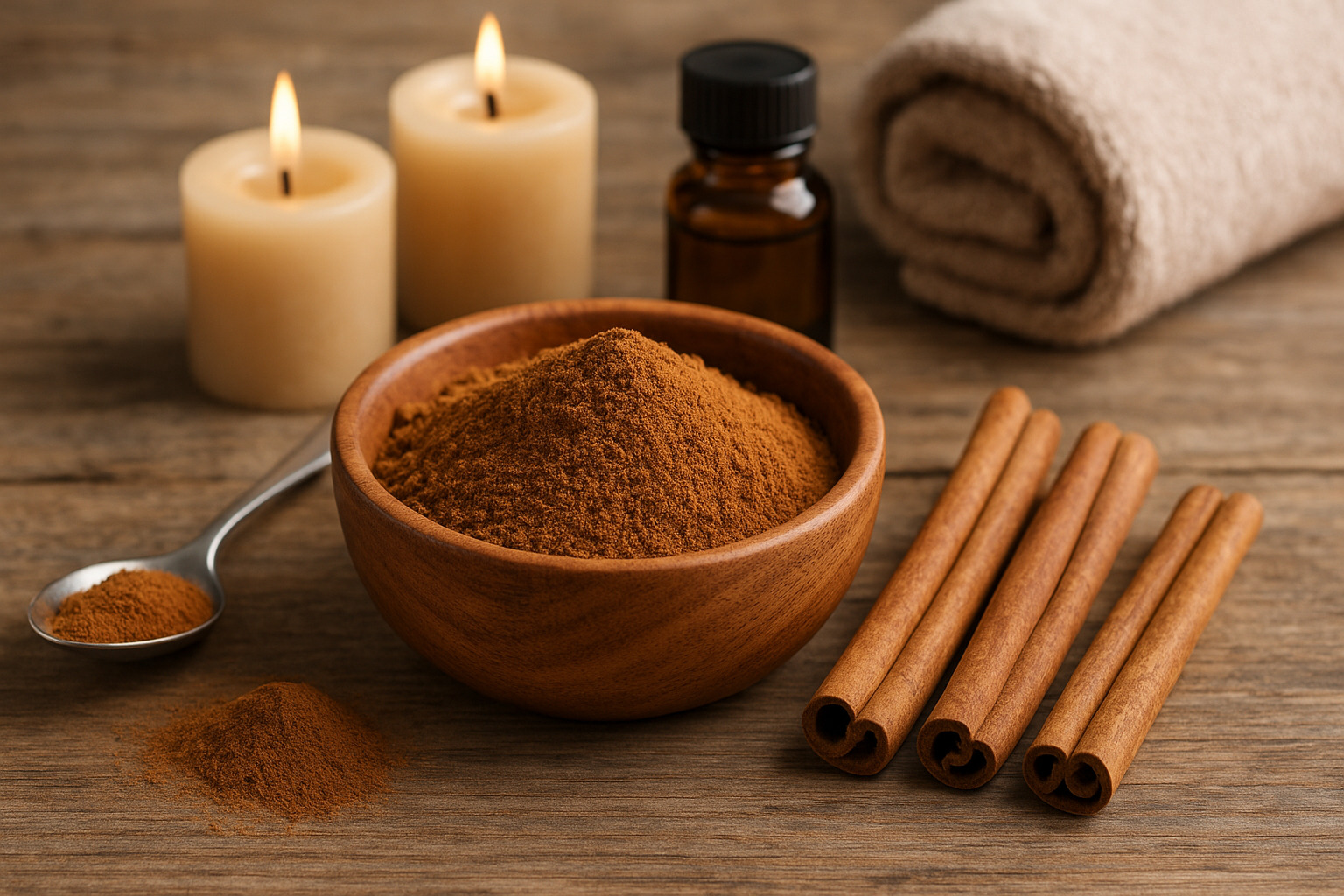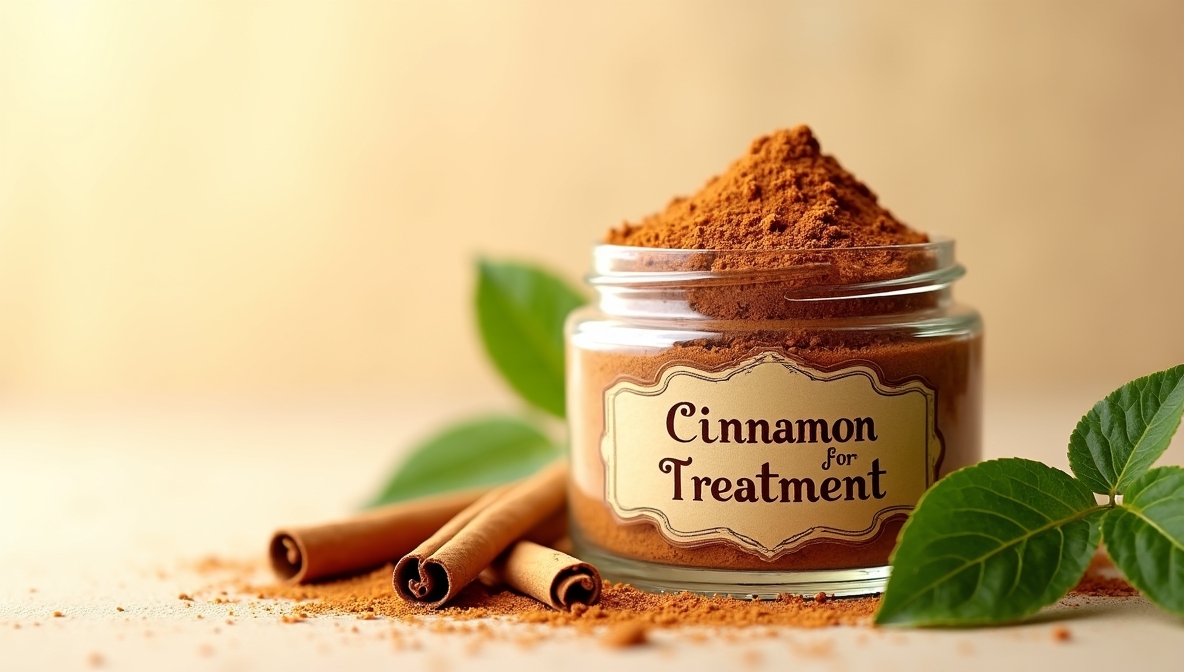Cinnamon does more than flavor your food. Its natural compounds influence stress hormones, brain function, and inflammation, making it a supportive addition to stress and anxiety management. This detailed guide explains how cinnamon works, research-backed benefits, and practical ways to use it daily.
What Makes Cinnamon Good for Stress and Anxiety?
Cinnamon interacts with the nervous system in several ways. Its aroma influences emotional brain centers, its compounds regulate cortisol, and its antioxidants protect against stress-related inflammation. These combined effects make it a gentle yet effective natural support for emotional balance.
Key Benefits of Cinnamon for Stress and Anxiety
1. Calming Aroma for Relaxation
The warm scent of cinnamon activates the limbic system, reducing tension and mental fatigue. Aromatherapy with cinnamon essential oil or simmered cinnamon sticks can create a relaxing environment at home.
2. Natural Cortisol Regulation
Cinnamaldehyde, a primary active compound, may help lower cortisol, the stress hormone. Balanced cortisol levels reduce irritability and allow the body to recover faster from stress.
3. Stabilized Blood Sugar and Mood
Cinnamon improves insulin sensitivity, preventing blood sugar spikes that often lead to mood swings and anxiety. Consistent blood sugar levels keep energy stable, helping the mind stay calm.
4. Mental Clarity and Focus
Antioxidants in cinnamon, such as cinnamaldehyde and proanthocyanidins, protect brain cells from oxidative stress. Research shows cinnamon gum and powder can improve attention and memory, reducing anxiety-related brain fog.
5. Anti-Inflammatory and Antioxidant Action
Chronic stress increases inflammation in the brain and body. Cinnamon’s anti-inflammatory properties lower oxidative damage, which supports better emotional regulation and overall mental wellness.
6. Boosts Serotonin Activity
Animal studies show cinnamon oil increases serotonin receptor activity, promoting a calmer mood and reducing anxiety behaviors. This makes cinnamon a potential natural aid for neurotransmitter balance.
7. Muscle Relaxation for Better Sleep
Cinnamon may help ease muscle tension, which often accompanies anxiety. A cup of warm cinnamon tea before bed supports muscle relaxation and better sleep quality.
8. Adaptogen-Like Stress Support
By influencing cortisol, neurotransmitter activity, and metabolism, cinnamon acts similarly to adaptogens, helping the body cope with stressful conditions more effectively.
How to Use Cinnamon for Stress Relief
Simple Daily Uses
- Cinnamon Tea: Brew a stick or ½ teaspoon of powder in hot water
- Breakfast Add-In: Sprinkle on oatmeal or yogurt for mood support
- Smoothies: Blend with fruits for a calming start to the day
- Aromatherapy: Diffuse diluted cinnamon essential oil for a relaxing atmosphere
- Cinnamon Gum: Chewing gum can improve focus and lower stress at work
Recommended Dosage
- Use Ceylon cinnamon for regular consumption due to its low coumarin content
- Stick to ½ to 1 teaspoon daily (1–3 g)
- Limit Cassia cinnamon to smaller amounts if consumed daily
- Always dilute essential oil before use
- Consult a healthcare professional if you have liver issues or take medication
Scientific Evidence Supporting Cinnamon for Anxiety
- Animal Studies: Repeated use of cinnamon oil reduced anxiety-like behaviors
- Human Studies: Chewing cinnamon gum improved focus and reduced stress in controlled trials
- Meta-Reviews: Research supports its antioxidant, anti-inflammatory, and blood sugar benefits, which indirectly improve emotional wellness
Practical Tips for Maximum Benefits
- Use cinnamon consistently for long-term results
- Combine with relaxation techniques such as deep breathing or yoga
- Take short mindful breaks with cinnamon tea during stressful periods
- Include it as part of a balanced lifestyle for better mental resilience
Best Situations to Use Cinnamon for Stress Relief
- Work Deadlines: Chew cinnamon gum to stay focused and calm
- Evening Wind-Down: Drink cinnamon tea before bed to relax
- Post-Meal Slump: Add cinnamon to yogurt or smoothies to stabilize energy
- Overthinking or Restlessness: Use cinnamon aromatherapy to set a calming mood
Can Cinnamon Help Long-Term Stress Management?
Yes. Regular intake helps regulate hormones, support brain health, and create calming daily rituals. Combined with good sleep, exercise, and healthy nutrition, cinnamon can be a natural addition to a stress-reducing lifestyle.
Disclaimer: The information in this article is for general knowledge only and should not replace professional medical advice. If you have health concerns or take medication, talk to your doctor before making changes to your diet.




